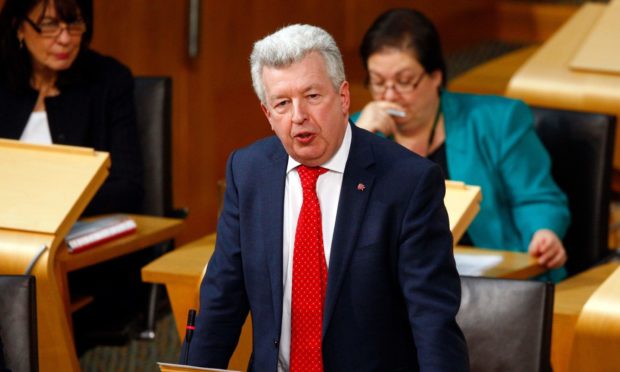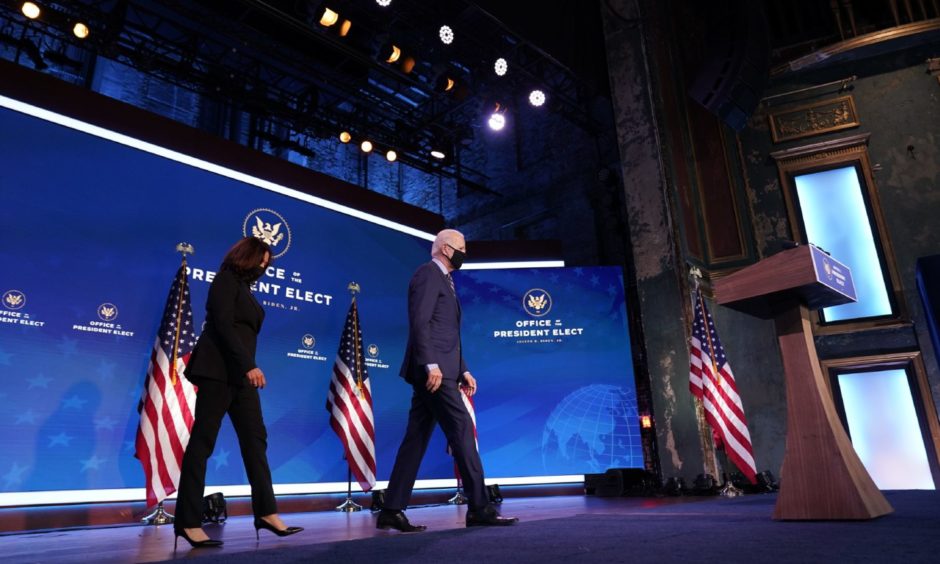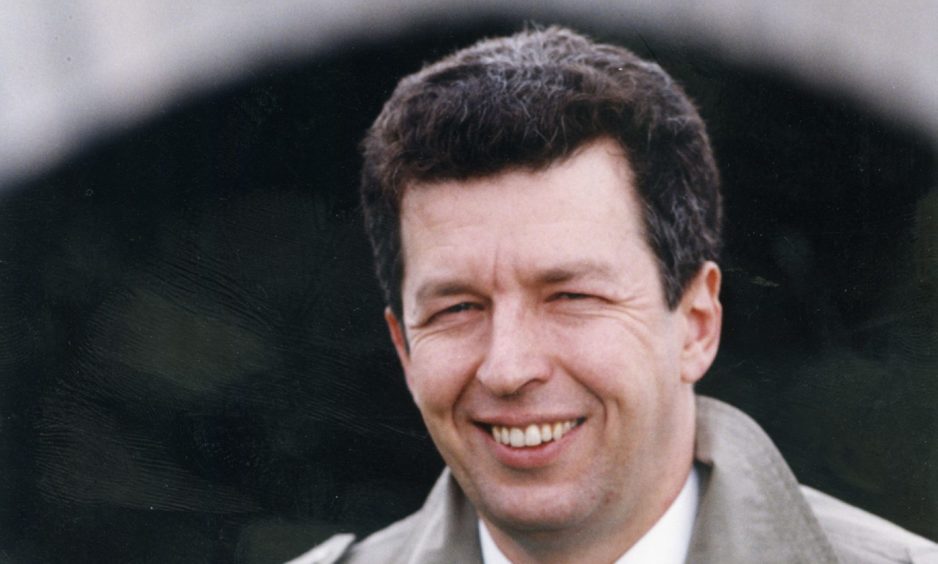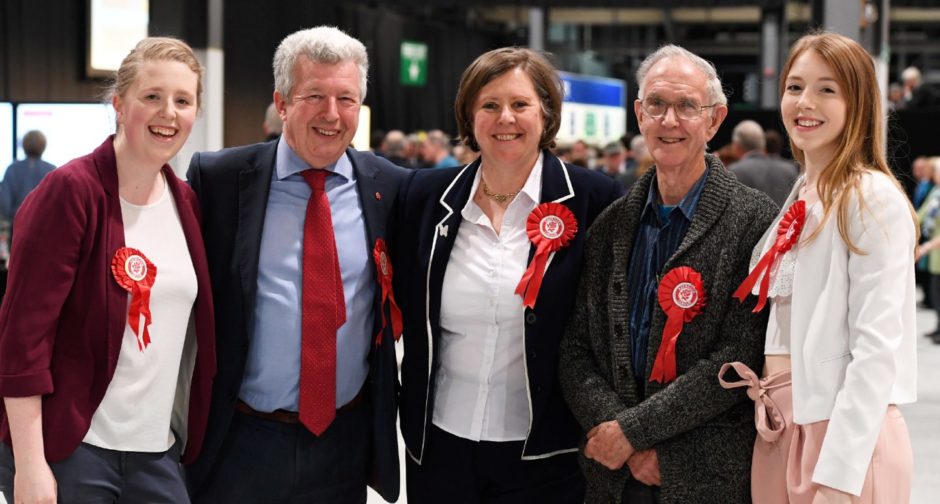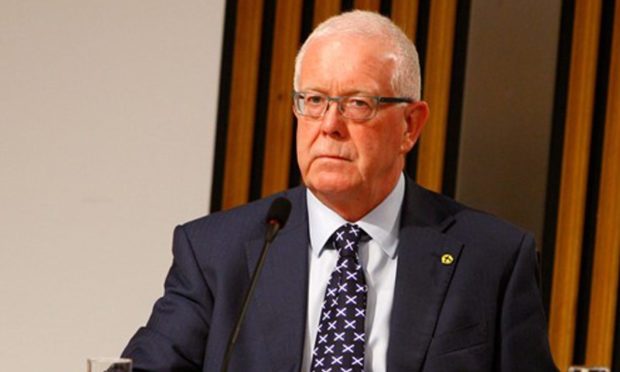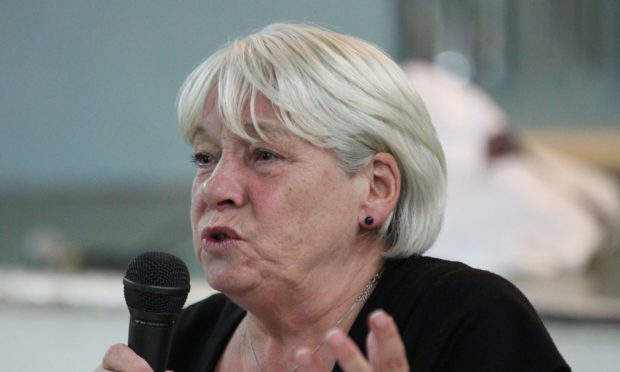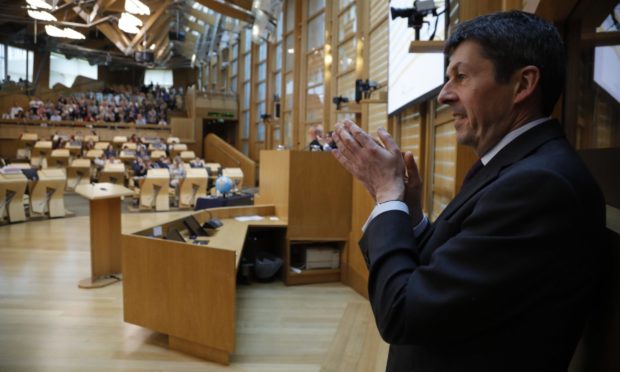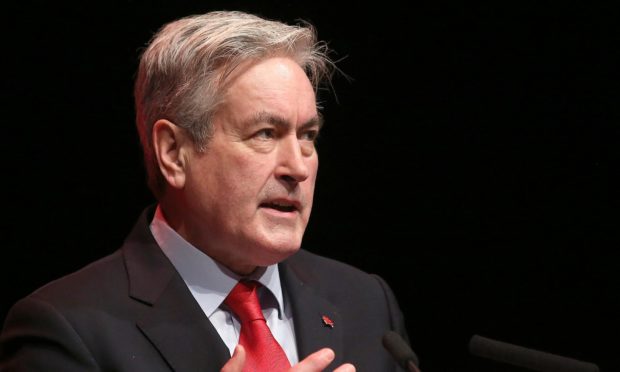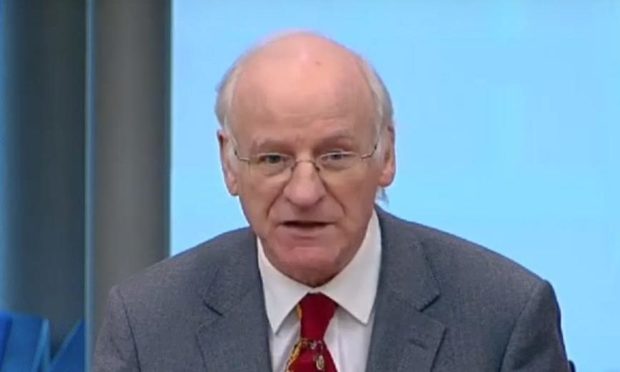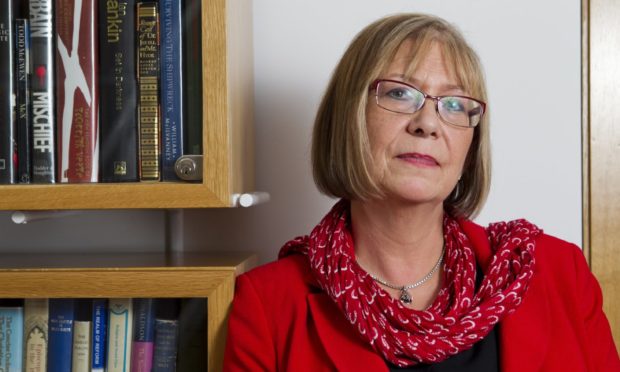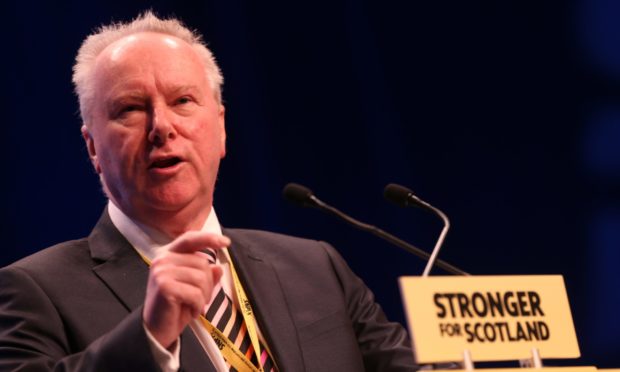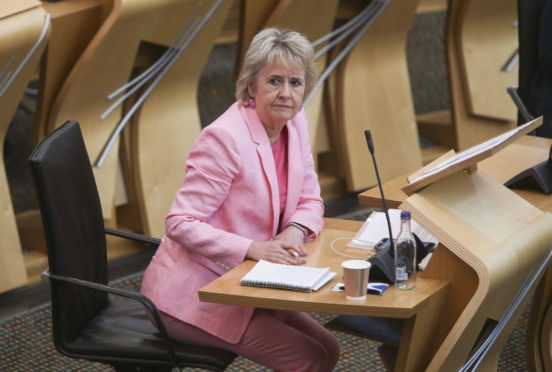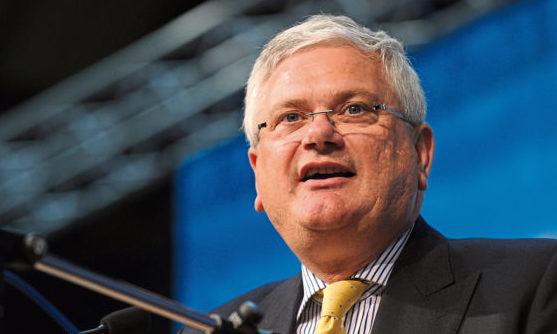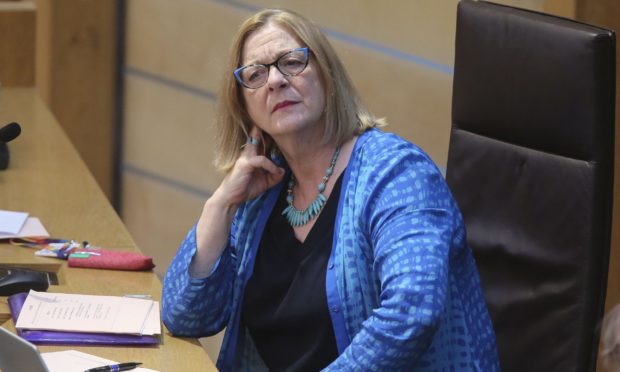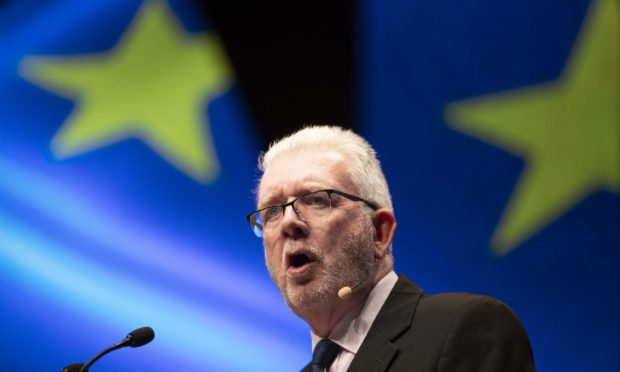Scottish Labour MSP Lewis Macdonald is confident the challenges the world will face over the next decade will usher in a move away from the division of recent years.
The north-east politician will have completed 22 years at Holyrood when he stands down this year, saying it is time for Labour’s next generation of politicians to take over.
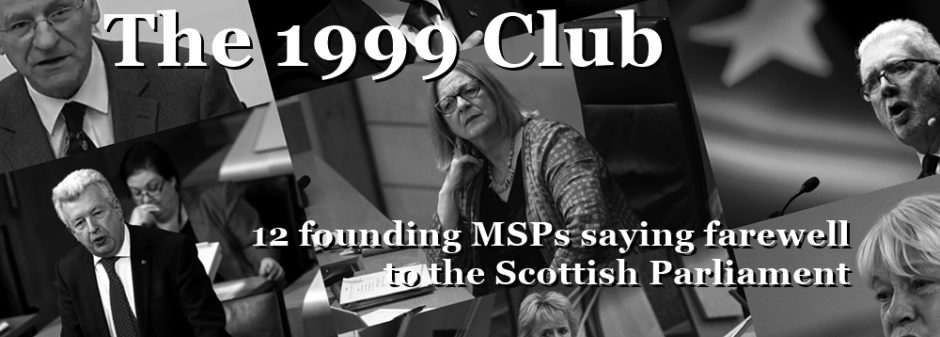
He believes his party’s electoral fortunes have suffered as a consequence of the “shift” away from the politics of left versus right and “towards nationalities and borders”.
Mr Macdonald said: “The issues around union versus independence have become very powerful focuses for people’s attention.
“I regret that deeply. It takes the focus away from the real change and real benefit and, at the same time, we’ve had Scottish nationalism on the rise; we’ve had British nationalism on the rise.
“I think both those things kick humanity in the wrong direction.”
The Scottish Labour politician, who was elected to the Scottish Parliament in 1999, was first motivated to enter politics in the backdrop of the election of Margaret Thatcher in 1979 and the unpopular poll tax.
He said his party set an agenda of social and economic reform that was “highly successful” in creating a more equal society and is confident the politics of his party will return to prominence in what promises to be another extraordinary decade.
“Whether it’s global pandemics or the economic dislocation that comes from that or whether it’s climate change, all of those things require a new politics”, he said.
“A politics that goes from the division of the recent past and back to a social democratic or left-wing agenda and I think after a number of years of retreat for the democratic left across the world, Joe Biden and Kamala Harris being elected in the US is the first sign that things are moving back again.
“People around the world will recognise that we can only overcome climate change and pandemics and the risk of economic dislocation if we work across borders and bring borders down rather than put them up.
“I think our politics will come again. I very much want to encourage the people who will lead us in that new period of change and I’m very optimistic that they will set a different agenda going forward than the one we’ve seen in the last five to 10 years.”
The north-east politician campaigned for a Scottish Assembly in 1978 while studying at Aberdeen University and it has been his “lifelong view that a devolved Scottish Parliament would allow people in Scotland to make their own decisions about things that affect Scotland at home”.
Power to the people
The biggest change in Scottish politics over the last two decades has been the accessibility of parliament with power brought “closer to the people”, Mr Macdonald claims.
Unlike many of his colleagues from the 1999 club, who were also interviewed as part of our series, he thinks tribalism has always been a feature of Scottish politics.
He said: “The Scottish Parliament was created in an effort to overcome that and I think it did. I might make the argument that in the first couple of terms that cross-party working was the big feature whereas in the last couple of terms it is that division over the issue of independence that is the dominant feature of political debate.
It may be, despite that stress, the Scottish Parliament is one of the institutions that will help pull people together again.”
“I regret that. I would not put that down to the Scottish Parliament. It has happened across Britain with Brexit; it’s happened in other countries too. We’ve seen four years of Donald Trump in the US, which a decade ago no one could have predicted would happen.
“That kind of divisiveness is not a failing of the Scottish Parliament or a feature of Scottish political life. It’s a feature of Western democracies at a time of crisis.
“It may be, despite that stress, the Scottish Parliament is one of the institutions that will help pull people together again.”
Biography
Name: Lewis Macdonald
Age: 64
Party: Scottish Labour
Member: North East Scotland
Born: Stornoway, Outer Hebrides
Education: Received an MA in History and studied a PhD in African Studies at Aberdeen University
Career: Parliamentary researcher for Frank Doran, MP for Aberdeen Central, (1987-1992); history lecturer at Aberdeen University (1992-1993); Shadow Cabinet adviser to Tom Clarke, MP for Monklands East (1993-1997); parliamentary researcher for Frank Doran, MP for Aberdeen Central (1997-1999)
Political career: MSP for Aberdeen Central (1999-2011); served as a minister in the then-Scottish Executive (2011-2007); MSP for north-east region (2011-present)
The 64-year-old said the decision to stand down ahead of the 2021 election was always a “balance of judgement” but, after more than 20 years, feels he has fulfilled what he wanted from the Scottish Parliament and what he wanted to contribute in return.
“In truth, I’ve probably explored all the different aspects of being a member of parliament that were there for me and thoroughly enjoyed the whole thing,” he said.
“The one thing I wouldn’t want to do is to stay longer than I felt, either, I was very useful or I was enjoying being there.
“I feel both that I have contributed a lot over that time and that I have enjoyed the experience and having done all that I’ve fulfilled what I wanted from the Scottish Parliament and what I wanted to contribute to the Scottish Parliament.
“Come the election, I’ll be 64 and that’s quite a good age for doing something else and (after) another term I’ll be much older and possibly not that up to doing other things.”
When analysing the success of the institution he has been part of for 20-plus years, the Labour MSP compares the parliament to a child, albeit one that has now “grown up but is still looking for its role moving forward”.
He said: “I always think of it in terms of the birth of the Scottish Parliament, its rather difficult infancy and then growing maturity and now needing to find a new direction going forward.
“But I think it has matured and it has demonstrated that it makes a real contribution to the democratic life of the country.
“I guess the test of that is: who can imagine Scotland without the Scottish Parliament?”
